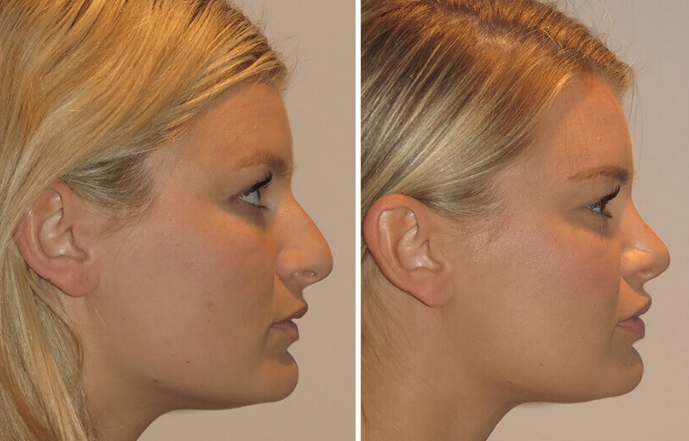Nose Implant in Georgia
Search and Compare the Best Clinics and Doctors at the Lowest Prices for Nose Implant in Georgia

Find the best clinics for Nose Implant in Georgia
No clinics available
Thailand offers the best prices Worldwide
Price: $ 192

- Home
- Georgia
WHY US?
At Medijump, we're making medical easy. You can search, compare, discuss, and book your medical all in one place. We open the door to the best medical providers worldwide, saving you time and energy along the way, and it's all for FREE, no hidden fees, and no price markups guaranteed. So what are you waiting for?

Free

Best Price

Widest Selection

Risk-Free
What you need to know about Nose Implant in Georgia

Nose implant, also known as Augmentation Rhinoplasty, is a cosmetic surgery to change the shape of the nose by placing an implant. The procedure is mostly performed to bring balance to the face since the nose is the most noticeable part of the face. The procedure can be carried out to enhance appearance or repair deformities from an injury or correct a birth defect.
What does a Nose Implant Procedure Involve?
Nose implant can be carried out under general anesthetic or local anesthetic with sedation, depending on the complexity of the surgery and your surgeon's preference. The procedure may be performed through a small incision inside the nostrils (closed rhinoplasty) or through a small external incision at the base of your nose (open rhinoplasty). After making the incision, your doctor will place the implant, which may be synthetic (Gore-Tex, Silicone, Medpor) or autologous (from other parts of your body, such as cartilage from your rib). The final step is placing the nose’s skin and tissue into its original position and stitching up the incisions.
How Long Should I Stay in Georgia for a Nose Implant Procedure?
If no complications arise, you should be able to leave the hospital on the same day. However, if general anesthesia is used during the surgery, you may need to stay overnight. After you are discharged from the hospital, expect to stay in Georgia for 10 to 14 days to attend regular follow-up checkups.
What's the Recovery Time for Nose Implant Procedures in Georgia?
You may experience swelling around your eyes, but this will gradually subside within 3 to 14 days. You should avoid strenuous activity (such as heavy lifting and intense exercise) for 3 to 6 weeks, but you may be able to return to work and some light activities in 1 to 2 weeks following the surgery. The full recovery time until your nose is completely healed is normally 6 months.
What sort of Aftercare is Required for Nose Implant Procedures in Georgia?
After your surgery, you will need to keep your head elevated to prevent aggravated swelling. Do not blow your nose and avoid extreme facial expressions for at least 10 to 14 days following the surgery. Your doctor will give you a recommended diet plan, which may include high-fiber foods such as vegetables and fruits to avoid constipation since constipation can cause strain to the surgery site.
What's the Success Rate of Nose Implant Procedures in Georgia?
Nose implant is known to have a high success rate of about 85% to 90%, particularly when performed by a certified plastic surgeon. Although the success rate is high, you need to be aware of the side effects and risks, such as bleeding, infection, difficulty breathing, permanent numbness around the nose, uneven-looking nose, pain, scarring, discoloration, septal perforation, and allergic reactions to the anesthesia.
Are there Alternatives to Nose Implant Procedures in Georgia?
If you do not want to undergo surgery but you want to change the appearance of your nose, your alternatives are fillers and Botox, which are non-invasive. Both are injected into the skin of your nose to change its shape.
What Should You Expect Before and After the Procedure
Before the nose implant, you may not like the shape, size, or the overall look of your nose, your nose may look smaller or large on your face. After a nose implant, the size of your nose can be augmented and made proportionately to fit your face, which will improve your overall appearance.
Whilst the information presented here has been accurately sourced and verified by a medical professional for its accuracy, it is still advised to consult with your doctor before pursuing a medical treatment at one of the listed medical providers
No Time?
Tell us what you're looking for and we'll reachout to the top clinics all at once
Enquire Now

Popular Procedures in Georgia
Prices Start From $404

Prices Start From $111

Prices Start From $70

Prices Start From $220

Prices Start From $1,945

Prices Start From $101

Prices Start From $101

Prices Start From $500

Recommended Medical Centers in Georgia for procedures similar to Nose Implant

- Interpreter services
- Translation service
- Religious facilities
- Medical records transfer
- Medical travel insurance
- Health insurance coordination
- TV in the room
- Safe in the room
- Phone in the room
- Private rooms for patients available

- Interpreter services
- Translation service
- Religious facilities
- Medical records transfer
- Medical travel insurance
- Health insurance coordination
- TV in the room
- Safe in the room
- Phone in the room
- Private rooms for patients available

- Interpreter services
- Translation service
- Religious facilities
- Medical records transfer
- Medical travel insurance
- Health insurance coordination
- TV in the room
- Safe in the room
- Phone in the room
- Private rooms for patients available

- Interpreter services
- Translation service
- Religious facilities
- Medical records transfer
- Medical travel insurance
- Health insurance coordination
- TV in the room
- Safe in the room
- Phone in the room
- Private rooms for patients available

- Interpreter services
- Translation service
- Religious facilities
- Medical records transfer
- Medical travel insurance
- Health insurance coordination
- TV in the room
- Safe in the room
- Phone in the room
- Private rooms for patients available
Nose Implant in and around Georgia
Introduction
Georgia is located in the Caucasus region of Eurasia and it is the most visited country in South Caucasus. From its green valleys and vineyards to its old watchtowers and old churches, this country will never disappoint. Over the last 5 years, Georgia has been visited by an increasing number of medical tourists. These foreign patients, mostly come from Saudi Arabia, Kuwait, Iraq, and Russia, are attracted to Georgia’s high-quality and affordable medical care, as well as the medical center’s first-class services. Most of these patients come for dental treatments, cosmetic surgery, oncology, radiology, liver and kidney transplantation, bone marrow transplantation, orthopedics, infertility treatment, and bariatric surgery.
Popular Cities and Regions in Georgia
Georgia’s vibrant capital, Tbilisi, offers picturesque Old Town, outstanding architecture, dramatic valley setting, and terrific cuisine. Home to 30% of the country’s population, this city is lively and filled with hipster culture and techno scene. One of the most famous monuments in the city is Kartlis Deda, which is a 20-meter tall aluminum symbol of Tbilisi. Another popular city is Batumi, which is the country’s most charming seaside destination. Its synthesis of the mountain and the sea is truly unique and interesting. The most popular attractions in this city, besides its beach, are Batumi Boulevard, Batumi Botanical Garden, Medea Monument, Ortajame Mosque, and Batumi Archeological Museum.
Transport in Georgia
International tourists will arrive in Tbilisi International Airport. It serves flights to and from several cities in Europe, the Middle East, and Asia. There are numerous budget airlines that operate flights from this airport, including IndiGo, Ryanair, and AirAsia X. To travel around the country, domestic flights, buses, and trains are available. To get around major cities, several public transportation options are available. The most common way to get around is by local minibus and buses. Taxis are widely available, but make sure to agree on the fare before getting on.
Visas in Georgia
Georgia allows citizens of 98 countries, including all European Union countries, the US, Japan, and Australia, to stay for a year. Holders of passports issued by 66 countries, such as Bolivia and Egypt, are eligible to apply for e-Visa. The e-Visa is valid for 90 days per 180-day period and 30 days per 120-day period. Citizens of other countries, such as Sudan and Morocco, need to apply for a visa in advance.
Weather in Georgia
Winter in Georgia is usually very cold, with temperatures ranging from 2°C to 6°C, and sometimes dropping below 0°C at night. Summer, from June to August, is pleasantly warm with average temperatures of 20°C to 30°C. However, some coastal areas are humid during this season. Spring and Autumn are delightful as the weather is not too hot, nor too cold. Both of these seasons see frequent rainfalls.
Additional Info
- Local Currency: Lari (GEL) is the official currency of Georgia. 1 USD is equivalent to 2.7 GEL.
- Money & Payments: ATMs are easily available and credit cards are accepted in most restaurants, shops, and hotels. However, if you travel outside of Tbilisi, it’s best to bring plenty of cash. Tipping is expected.
- Local Language: Georgian is the official language. Russian is common, while English is becoming more widespread.
- Local Culture and Religion: The majority of Georgia’s population is Christian. Other religions, including Islam, Judaism, and Bahá'í Faith are present.
- Public holidays: Some of the most celebrated public holidays are New Year’s Day, Orthodox Christmas, Great Saturday, Day of Victory over Fascism, and Independence Day.
Popular Searches
- Plastic Surgery in Thailand
- Dental Implants in Thailand
- Hair Transplant in Thailand
- Breast Augmentation Thailand
- Gastric Sleeve in Thailand
- Gender Reassignment Surgery in Thailand
- Laser Hair Removal in Bangkok
- Botox in Bangkok
- Dermatology in Bangkok
- Breast Augmentation in Bangkok
- Coolsculpting in Bangkok
- Veneers in Turkey
- Hair Transplant in Turkey
- Rhinoplasty in Turkey
- Stem Cell Therapy in Mexico
- Rhinoplasty in Mexico
- Liposuction in Mexico
- Coolsculpting in Tijuana
- Rhinoplasty in Korea
- Scar Removal in Korea
- Gastric Sleeve in Turkey
- Bone Marrow Transplant in India
- Invisalign in Malaysia
- Plastic Surgery in the Dominican Republic
- Tummy Tuck in the Dominican Republic
- Plastic and Cosmetic Surgery in Poland
- Rhinoplasty in Poland
- Hair Implant in Poland
- Dental Implants in Poland
- IVF in Turkey